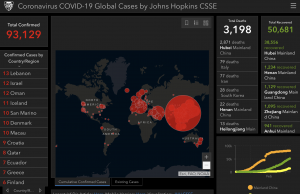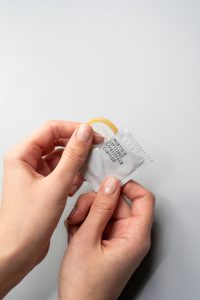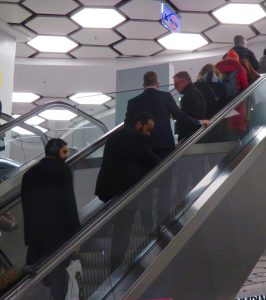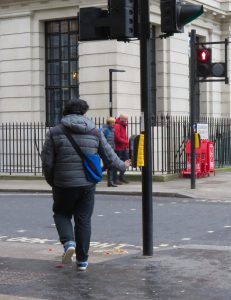Wednesday 4 March 2020

Italy is still keen for visitors to go there
The world is manifestly struggling, and the economic consequences of this virus are becoming clear. Only today, through TravMedia, I saw a press release declaring that “Italy is a safe country.” This was on the basis that only 0.05% of its landmass is currently affected with a mere 12 of 7904 Italian cities taking extraordinary measures. This figure will most likely change but this disease, and the global response to it, has placed much of the world in lockdown, some of it emotional, some of it actual. The travel industry is unquestionably being affected. One wonders if that is a bad thing? It perhaps pays for us to be forced to think how we should go about things. Taking a little longer to go places, or rationalising where we go, can surely do no harm?
People are thinking ahead, too, to a time when Covid-19 will not be a problem. My Singapore meeting, just postponed, has been rescheduled for September. Meanwhile events continue to be cancelled. My publisher at Oxford University Press wrote to me today to say that the company had decided not to attend the London Book Fair (LBF), which is scheduled for next week. I was planning to meet with OUP at the Fair. She wrote very tactfully to say, “Did I really wish to go?”

The situation this morning – 4 March 2020 (courtesy Center for Systems Science and Engineering at Johns Hopkins University)
I wrote nonsensically back, something about me being awash with hand gel and training to outrun a coronavirus, but moments later I heard on the news that the LBF had been cancelled anyway. I had also registered for something called a Writers’ Summit, which was scheduled to take place on 10 March. The ticket came with free entry to the LBF, so it seemed good to attend both. I assumed the Writers’ Summit would also be cancelled but was wrong. Several hours later, an email pinged onto my screen. It was the Writers’ Summit, reminding me that the event was still taking place, in a bar and restaurant next door to Olympia. The government has yet to ban public meetings, although that is up its sleeve. This makes it difficult for companies and individuals to claim on insurance, as deciding not to attend a meeting is classified as a personal decision. My guess is that the Writers’ Summit has encountered this problem. I have written to them to ask:
“Bearing in mind that the London Book Fair has been cancelled in order to protect public safety, please advise the number of attendees for the Writers’ Summit and the seating arrangements for them. Will you be allowing a minimum of one metre distance between attendees? In addition, I am sure you will have sought medical advice before making this decision to continue. Might I see a copy of this advice, please?”
I wonder what they will say?
I am trying to buy a house in Cumbria at the moment, so have been in touch with my surveyor in the UK’s North-West. He told me that a case of Covid-19 had been found just across the hill from him. The surveyor has a splendid sense of humour and asked me if he should worry. I told him that it was likely that everywhere in the UK would experience this in due course and he should not see himself as an exception. We agreed in the end that lashings of hand gel, if any was available, washed down with copious beer, was the best treatment. He is in his 50s, has six children, and a few grandchildren, too. Together we laughed when I reminded him that Covid-19 is a perfect example of natural selection. The youngsters carry it, perhaps develop a mild illness with almost no chance of dying whatsoever. The young then give it to the old, men in particular – 70% of Covid-19 infections are male – and the old then perish, thanks to a mortality rate of over 3%. For those aged over 80 years, mortality can be 20% or higher. Throw in previous lung disease and the odds are even worse.
The pattern of the illness seems to be an incubation period of 2 to 14 days although there have been outliers, with one as long as 27 days. Data from China has shown that the time from first symptoms to shortness of breath is 5 days, hospital admission by 7 days, and Acute Respiratory Distress Syndrome (ARDS) by 8 days. Should you die, that is normally by day 14, but there is a wide range. The older you are, the shorter these times. One research paper from Wuhan (China) had a range of 10 to 41 days from first symptom to death for patients under 70 years of age, but 6 to 19 for those older than this.

Condoms are selling like hot cakes (cottonbro)
There is unquestionable panic buying still continuing. Toilet paper has become a collector’s item in New Zealand, for some reason. And that is a country with barely any Covid-19 cases at all. Condoms are also in short supply. No one knows why but it has been suggested that people are wearing a condom on their forefinger, so they can press buttons in lifts, pedestrian crossings and all those other places in our button-driven world.
My hand gel has arrived. Yippee! I ordered a full litre of gel some time ago from Amazon. It was meant to have appeared yesterday but actually appeared today. A driver stood in the pouring rain outside the front door of my London flat, rang the bell and shouted my name for the world to hear. I opened the door to see a bedraggled man in his early thirties clutching a black plastic-wrapped package. He gave it to me, I signed nothing, and I am now well prepared. I paid way over the odds for the hand gel. Someone, somewhere, is happy as there is plenty of serious marking up of prices taking place at the moment, in many different sectors.
I have decided to modify deliveries for the moment and not allow anyone indoors. The supermarket delivered today, but for the first time I asked them to leave it on the doorstep and I collected it from there. The driver was not surprised, and it was clear that other recipients have also asked him to do this. In fact, I think he was slightly relieved. The deliverers must be just as worried about their customers as we are worried about them.
The number of cases is rising around the world, as one might expect. In the United Kingdom we have reached 87, with a couple of new, confirmed cases in Northern Ireland. Yet still our numbers are lower than the market leaders of China, South Korea, Iran and Italy. The United Kingdom has yet to have a death of a UK resident from Covid-19, but I feel sure that will shortly come. The government has allowed sick pay to be paid from the first day of an illness so workers with Covid-19 do not feel obliged to stagger into work and will make no financial loss by staying at home when unwell.
I was interested to learn that two types of coronavirus have now been discovered, an S-type and an L-type. The L-type was more prevalent when the outbreak began in Wuhan. It may be more aggressive and spread more quickly. The S-type has been found to be the ancestral version and is evolutionarily older and less aggressive. Although the L-type is now the more common of the two (70% of cases), its frequency has decreased since early January 2020. The S-type (30% of cases) may have increased in relative frequency and it is possible to have both. The boffins are looking into the virus in plenty of ways, with so much more to be learned.
With Covid-19 just around the corner and creating its mayhem, I imagined that the British public would be tuning in and adjusting rapidly. No chance. If I had any doubts, a brief visit to London’s Oxford Street, a short walk from where I live, showed me enough. I turned my observations into an article, which I then placed on Linkedin. The piece had more than 6000 hits in no time, and read like this:
***
If I was a virus called Covid-19, I would look no further than London’s Oxford Street. As mankind dashes left and right, focussed on a busy day, I could infect anyone I chose, as so few humans are doing as instructed.
But I am no virus, I am a surgeon, and spend my life practising what is called aseptic technique. It is my job to reduce the chances of infecting my patients and for that matter, to stop them infecting me. There are well-tried drills that go back many years that are engrained into the surgical psyche. Many of those drills are what are needed now, to reduce the chances of Covid-19 infection.

Barehanded on a handrail – just think who has held it before
So, I thought I would look. My country is on its uppers, waiting for the attack. Surely by now we have heard the health boffins’ message? At a busy lunchtime, I took a stroll, and wandered the less-than-one-mile distance from Oxford Circus to Marble Arch. I wished to see how the public is behaving, faced with the global threat from this new beastie that has affected many, will affect many more, and has a mortality equivalent to the horror pandemic, Spanish influenza of 1918. I was not impressed.
As I took my first step from Oxford Circus, a man in his twenties, leaning against a shop corner while studying his mobile telephone like a forensic scientist, gave a huge sneeze. You would have heard it in Timbuktu. No hand, no forearm, just directly onto his mobile. I could see the droplets flying and land on the tiny screen, so I lurched quickly to one side to keep my distance. Twenty metres further on, a young woman gave a loud cough. Again, no hand or forearm to protect those around her. She, too, was distracted by her mobile.
By the time I had reached the first major department store, I had seen a dozen passers-by scratch their face bare-handed, a couple in a tight clinch with a full mouth-to-mouth kiss, and half-a-dozen others shaking ungloved hands. Smokers and vapers were loitering outside doorways dragging on cigarettes with naked hands. One was smoking with his right hand and picking his nose with his left, an antic I thought was impossible.
I thought it was perhaps just Oxford Circus and as I approached Marble Arch things might get better. Sadly not. Halfway through my wander, I saw a middle-aged, bearded man blow his nose on a tissue and put it back in his left jacket pocket. The lady standing beside him whispered something in his ear and then the man reached into that same pocket, retrieved the crumpled tissue, and handed it to the lady. She then blew her nose and handed the tissue back. The man placed it immediately into his left pocket and the two continued chatting. I wagered that tissue was crawling with Covid-19.
Not once did I see hand gel being used, during my entire journey along a busy Oxford Street. And although masks are questionable, I saw only two. The remainder of my fellow citizens were hurtling this way and that mask-free. One woman walked past wearing a niqab. I thought for a moment that when it comes to Covid-19, there may be an advantage for the Muslim ladies when they wear traditional dress.
A few were making a valiant effort to behave correctly. The shiny door handles to so many of London’s shops are Utopia to a virus and I saw a few fellow humans pull a sleeve over their hand, and then pull the door handle to enter. At no point did their skin touch the handle. That is brilliant. Yet they were few. Most simply grabbed the handle barehanded, gave it a tug, and entered. Plenty tugged the handle and, once inside, proceeded immediately to scratch their face. One even placed a forefinger in his mouth to ponder.
The escalator at Bond Street Underground was a moving culture medium as body stood behind body with barely any distance between them. Bare hands clutched the handrail that had been grasped by so many others before it. No better spot could I think of for a virus.

Don’t touch that button!
Unless I chose a traffic-light pedestrian crossing. There are plenty on Oxford Street, each with a control panel and a tiny button that triggers “Wait” until a little man turns green. The button is near impossible to press with anything other than a forefinger. I tried my elbow, knee, and buttock but the tiny recessed button would not shift. No wonder my fellow pedestrians used a bare forefinger, as almost all were ungloved. One attractive woman, dressed to both kill and for a date, pressed the button, ignored the “Wait” instruction, stepped onto the road immediately, scratched her bottom lip and jaywalked past hurtling traffic that was hooting its disapproval. I watched in disbelief, wondering if she might soon need a surgeon, but she reached the far pavement unscathed, flung her arms around the neck of a waiting man, and together they began to kiss.
When it comes to government instruction to wash hands and avoid touching faces, I am sure it comes with best intention. The problem is the public. They hear but they do not follow, and they certainly do not obey.
***
